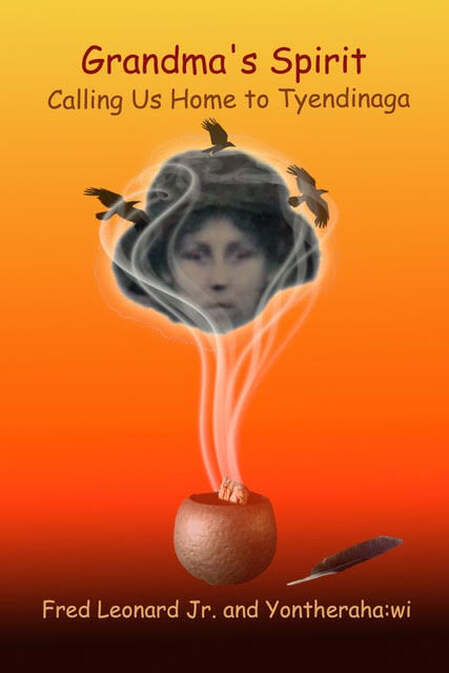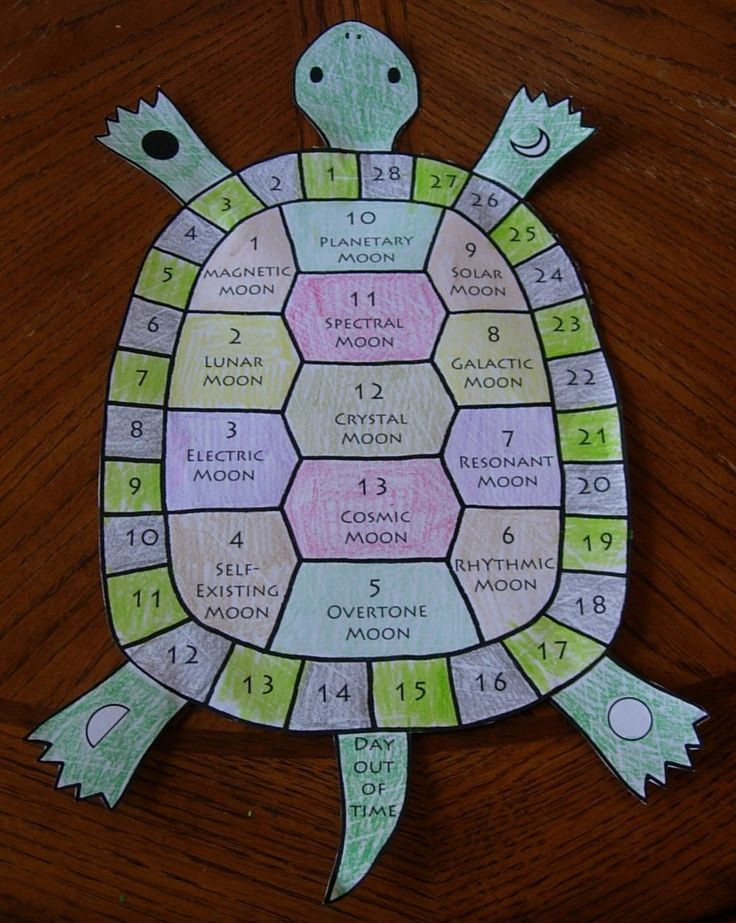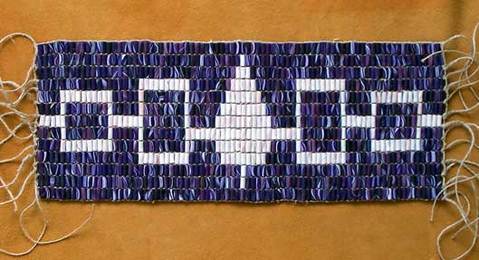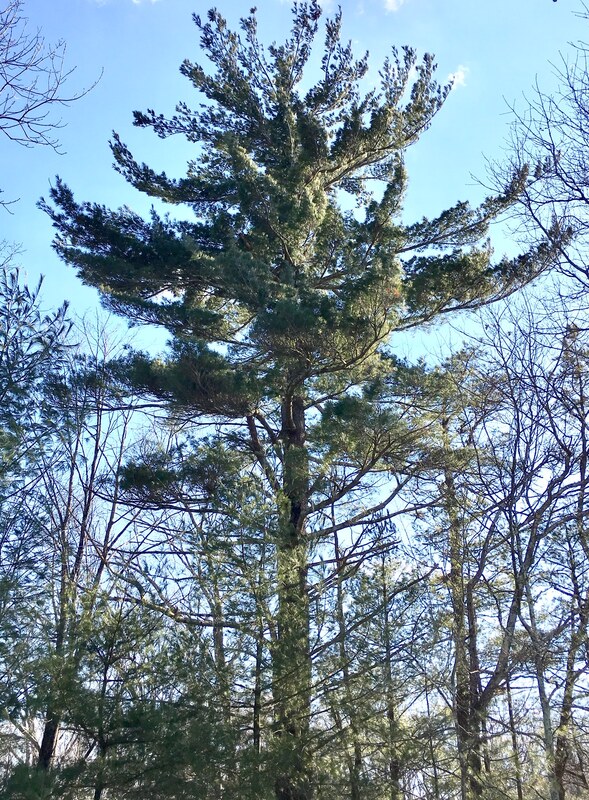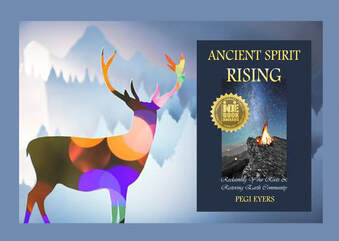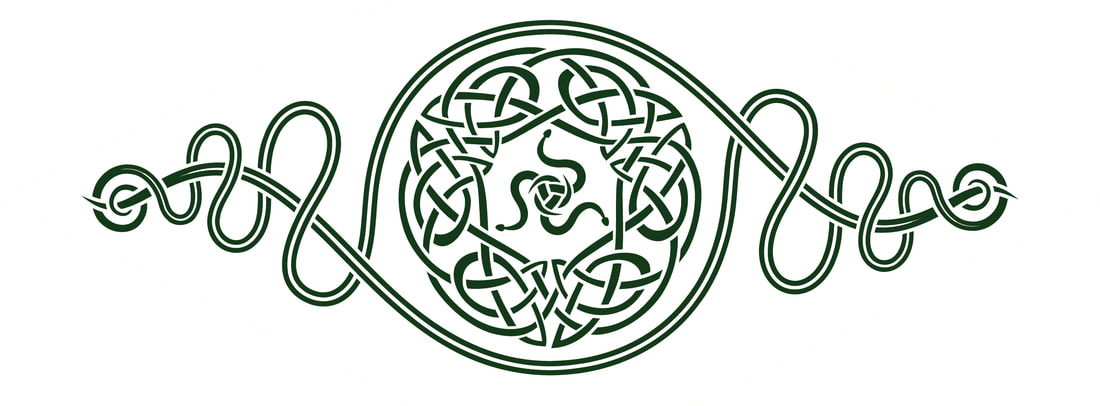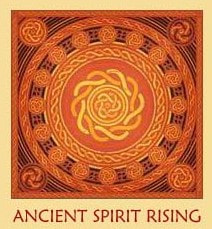REVIEW BY PEGI EYERS
The renaissance of First Nations today after generations of oppression is a magnificent revival of Indigenous Knowledge, and struggles for human rights, equity, sovereignty and land claims are ongoing. Restoring what was lost through colonization is key to healthy communities, and the reclamation of language and culture can take many forms. As the Old Ways return, reviving oral traditions are incredibly important, and the work of Fred Leonard Jr. is an astounding example of allowing epigenetic memory and the Ancestors to guide the way.
Like many contemporary First Nations folks separated from family, clan and community through displacement, residential schools and other trauma, Fred Leonard Jr. found himself seeking his Haudenosaunee roots. Leaving Toronto he was guided by his intuition to relocate to the Bay of Quinte, where he immediately felt welcome and at home. Meeting Mohawk teachers and Elders at Loyalist College led to his own explorations in genealogy and history, and an increased sense of belonging, with visits to Pow Wows and other events.
Who were his people? What family connections were just waiting, to be ignited once again? As Fred continued to focus on his relatives and his great-grandmother in particular, he kept wondering who she was, and what her life had been like. At a Pow Wow he attended, a great wind came rushing to him through the arbour during the women's sacred dance. From that moment on, he felt his great-grandmother's presence, and with the help of friend and seer Doreen South began to receive stories and promptings from his Ancestor, in great "downloads" of information resulting in an entire book of family history and Indigenous Knowledge.
Grandma's Spirit may be the first book I have ever read, that is a direct transmission from those who have gone before - in essence, the Beloved Dead. With the intent to honor the Ancestors and hear their voices, it takes an extraordinary amount of heart to be open to their messages. Fred dedicates his book to "all the ancestors' voices that are crying out from under the ground to be heard" and sends "greetings, thanks and love" to all his people, both living and in the ancestral realm. His approach is an incredible inspiration to all who have been separated from family and community, by the forces of colonialism, war, displacement or diaspora.
As Douglas M. George-Kanentiio says in the Foreword (author and husband of Joanne Shenandoah who recently passed into the spirit world), "We as Mohawks believe the demise of the physical body is by no means the end of life's journey. It is just a transition from this world to the next. It offers the possibility of reaching across the realities to bring a message, deliver a warning, assist in the recovery of trauma, or complete an instruction and a duty."
Fred's great-grandmother Yontheraha:wi/Sarah Maracle was in the spirit world for 3 generations, and yet she had the impeccable ability to return him to his people and complete his Instructions. Speaking through Fred, she describes a pivotal time in Mohawk history, when harmony and sustainability were disrupted and replaced with colonial rules, manipulation, racism and oppression.
As his search continues, Fred finds an entry in a local archive that he feels is a match for his great-grandmother, and sure enough, her identity is substantiated by Seer Doreen South. From that moment on, Yontheraha:wi/Sarah Maracle becomes his spirit guide, and informs him that she has already been guiding his steps back to his people, and that his purpose is now to write a book. Tyendinaga is his ancestral homeland, and like the Great Turtle, no obstacles stand in the way when the spirit is called back home. Other Ancestors also deliver communications to Fred, and he discovers that the stories of the past are essential to the generations that follow. With deep humility and respect, Fred declares that, "This book was spiritually-guided. It was written by my great-grandmother Sarah, not me. I was just the vessel that did the physical work, through her guidance. These are her teachings and this is her story."
And what a story it is~! Voiced by Yontheraha:wi/Sarah Maracle of the Bear Clan, we are introduced to ancestors, tribe and place; collective memories from the end of the last Ice Age on Turtle Island; and the beautiful Thanksgiving Address that honors every part of Creation. Grandma's Spirit seeks to guide clan members back to their Original Instructions, and traditional teachings never recorded before touch hearts and minds, and offer great healing. With kindness, humour, and the poetry of belonging, through the pages of Grandma's Spirit all people are being invited to learn the ancient wisdom of the Kanyen'keha:ka (Mohawk) people.
Like many contemporary First Nations folks separated from family, clan and community through displacement, residential schools and other trauma, Fred Leonard Jr. found himself seeking his Haudenosaunee roots. Leaving Toronto he was guided by his intuition to relocate to the Bay of Quinte, where he immediately felt welcome and at home. Meeting Mohawk teachers and Elders at Loyalist College led to his own explorations in genealogy and history, and an increased sense of belonging, with visits to Pow Wows and other events.
Who were his people? What family connections were just waiting, to be ignited once again? As Fred continued to focus on his relatives and his great-grandmother in particular, he kept wondering who she was, and what her life had been like. At a Pow Wow he attended, a great wind came rushing to him through the arbour during the women's sacred dance. From that moment on, he felt his great-grandmother's presence, and with the help of friend and seer Doreen South began to receive stories and promptings from his Ancestor, in great "downloads" of information resulting in an entire book of family history and Indigenous Knowledge.
Grandma's Spirit may be the first book I have ever read, that is a direct transmission from those who have gone before - in essence, the Beloved Dead. With the intent to honor the Ancestors and hear their voices, it takes an extraordinary amount of heart to be open to their messages. Fred dedicates his book to "all the ancestors' voices that are crying out from under the ground to be heard" and sends "greetings, thanks and love" to all his people, both living and in the ancestral realm. His approach is an incredible inspiration to all who have been separated from family and community, by the forces of colonialism, war, displacement or diaspora.
As Douglas M. George-Kanentiio says in the Foreword (author and husband of Joanne Shenandoah who recently passed into the spirit world), "We as Mohawks believe the demise of the physical body is by no means the end of life's journey. It is just a transition from this world to the next. It offers the possibility of reaching across the realities to bring a message, deliver a warning, assist in the recovery of trauma, or complete an instruction and a duty."
Fred's great-grandmother Yontheraha:wi/Sarah Maracle was in the spirit world for 3 generations, and yet she had the impeccable ability to return him to his people and complete his Instructions. Speaking through Fred, she describes a pivotal time in Mohawk history, when harmony and sustainability were disrupted and replaced with colonial rules, manipulation, racism and oppression.
As his search continues, Fred finds an entry in a local archive that he feels is a match for his great-grandmother, and sure enough, her identity is substantiated by Seer Doreen South. From that moment on, Yontheraha:wi/Sarah Maracle becomes his spirit guide, and informs him that she has already been guiding his steps back to his people, and that his purpose is now to write a book. Tyendinaga is his ancestral homeland, and like the Great Turtle, no obstacles stand in the way when the spirit is called back home. Other Ancestors also deliver communications to Fred, and he discovers that the stories of the past are essential to the generations that follow. With deep humility and respect, Fred declares that, "This book was spiritually-guided. It was written by my great-grandmother Sarah, not me. I was just the vessel that did the physical work, through her guidance. These are her teachings and this is her story."
And what a story it is~! Voiced by Yontheraha:wi/Sarah Maracle of the Bear Clan, we are introduced to ancestors, tribe and place; collective memories from the end of the last Ice Age on Turtle Island; and the beautiful Thanksgiving Address that honors every part of Creation. Grandma's Spirit seeks to guide clan members back to their Original Instructions, and traditional teachings never recorded before touch hearts and minds, and offer great healing. With kindness, humour, and the poetry of belonging, through the pages of Grandma's Spirit all people are being invited to learn the ancient wisdom of the Kanyen'keha:ka (Mohawk) people.
Yontheraha:wi tells of her birth, her early life, Indigenous ways of being, wisdom keeper protocols, and the special responsibilities of women. During her childhood she attends a government day school where the Kanyenkeha (Mohawk) language is banned, but she spends equal amounts of time in the forest, learning the special qualities of plants and trees, and communicating with the animals and elements in Earth Community. Love, beauty, sharing, peace and spirit are apparent in every living being, and the land is sacred. She develops the ability to "read" the winds, waters, sky and stars, and each season brings new adventures and TEK (traditional ecological knowledge) that has been time-tested for generations.
Yontheraha:wi's childhood is a high-energy round of harvesting nuts, berries, mushrooms, roots, herbs, bark and plant medicines, collecting firewood, cultivating corn, beans, squash and other vegetables, preparing food; and other chores, games, crafts and activities around the homestead. Her family makes their own clothing, baskets, paints, and musical instruments such as flutes, turtle shell rattles and water drums. She learns how to notice the patterns in nature, thank all beings, practice non-interference, save seeds, sing to the water, and hunt with respect. Yontheraha:wi' relays many legends shared by her community, such as tales of the ancient ones, celestial beings, the "little people" and tree lore, that give deep meaning to the natural phenomena all around them. When she is 10, she begins to see the spirits of her own Ancestors come and go, and is encouraged to embrace her special ability.
"My mother told me that everything would be all right, and that we come from a long line of people who see and hear the ancestors. It is a gift from the Great Spirit to help others." (Yontheraha:wi') Surely the same gift has come down through the generations to Fred Leonard Jr., as he materializes Grandma's Spirit into being. Like a time capsule from another era, Yontheraha:wi''s narrative is alive, and rich with humour, wisdom and deep connections to the land.
She offers more invaluable cultural teachings from early contact times, such as guidance and messages received from dreams; cultivating a good work ethic; promoting laughter and happiness; and how to nurture self and others to be healthy and strong spiritually, mentally, emotionally and physically. She finds that developing a strong Orenta (positive life force) early in life prepares her for the Okton (negative life force), that arrives in the form of tragedy and injustice.
As Yontheraha:wi' grows into her twenties, like other young native women she begins employment as a maid for a white family in Napanee. In the midst of adapting to new customs and a new language, she holds her head high and never denies her own heritage, even when enduring racist words and actions. Her statements on the rapacious greed of white people, their wasteful habits, and disrespect for nature all end with the same line, "Your ways are strange to me!" In 1903 she joyfully brings her twin babies into the world - a boy and a girl - and performs the traditional ceremony of introducing them to the Great Spirit and Mother Earth. She lovingly creates tiny blankets and handmade rattles for them, but very soon an "Indian Agent like a dictator" arrives to take the children away.
To destroy a culture, the children are removed from the family, and that was the exact agenda of the colonial powers in Canada. The Kanyen'keha:ka (Mohawk) people suffered paternalism, being treated "less than," and having external forces in control of their lives. In a culture clash that reverberates to the present day, the puritanical "ethics" of the Europeans and the loving egalitarian structure of Mohawk society had absolutely nothing in common. It took many years for Yontheraha:wi' to recover from her anger, sadness and grief, and never knowing what happened to her children was a tragedy she carried to the end of her days.
As the colonizers forced the Kanyen'keha:ka to assimilate into white society, and life became more and more restrictive, Yontheraha:wi' eventually found times of happiness with her new partner Angus, and continued practicing her spiritual and cultural traditions. Her deep connections to the sacred, the abundance in nature and the Great Spirit never wavered, and her tales of midlife into Elderhood are irreplaceable treasures of wisdom, and a miracle of the written word. She even describes her own death at the age of 67, and being in the spirit world allowed her to finally locate her beloved son Arthur James and daughter Ruby, and to become a guardian spirit for the living.
I can only imagine the joy that the author Fred Leonard Jr. would have felt to know his lineage again, and his amazement as another ancestor came forward to tell his life story from the spirit world - his grandfather Arthur James Leonard. Forms of direct transmission from the Beloved Dead found in Grandma's Spirit - in turn verified from the historical record - are deeply magical and transformative. In land-emergent Indigenous societies, the dead indeed can speak to the living.
Yontheraha:wi's childhood is a high-energy round of harvesting nuts, berries, mushrooms, roots, herbs, bark and plant medicines, collecting firewood, cultivating corn, beans, squash and other vegetables, preparing food; and other chores, games, crafts and activities around the homestead. Her family makes their own clothing, baskets, paints, and musical instruments such as flutes, turtle shell rattles and water drums. She learns how to notice the patterns in nature, thank all beings, practice non-interference, save seeds, sing to the water, and hunt with respect. Yontheraha:wi' relays many legends shared by her community, such as tales of the ancient ones, celestial beings, the "little people" and tree lore, that give deep meaning to the natural phenomena all around them. When she is 10, she begins to see the spirits of her own Ancestors come and go, and is encouraged to embrace her special ability.
"My mother told me that everything would be all right, and that we come from a long line of people who see and hear the ancestors. It is a gift from the Great Spirit to help others." (Yontheraha:wi') Surely the same gift has come down through the generations to Fred Leonard Jr., as he materializes Grandma's Spirit into being. Like a time capsule from another era, Yontheraha:wi''s narrative is alive, and rich with humour, wisdom and deep connections to the land.
She offers more invaluable cultural teachings from early contact times, such as guidance and messages received from dreams; cultivating a good work ethic; promoting laughter and happiness; and how to nurture self and others to be healthy and strong spiritually, mentally, emotionally and physically. She finds that developing a strong Orenta (positive life force) early in life prepares her for the Okton (negative life force), that arrives in the form of tragedy and injustice.
As Yontheraha:wi' grows into her twenties, like other young native women she begins employment as a maid for a white family in Napanee. In the midst of adapting to new customs and a new language, she holds her head high and never denies her own heritage, even when enduring racist words and actions. Her statements on the rapacious greed of white people, their wasteful habits, and disrespect for nature all end with the same line, "Your ways are strange to me!" In 1903 she joyfully brings her twin babies into the world - a boy and a girl - and performs the traditional ceremony of introducing them to the Great Spirit and Mother Earth. She lovingly creates tiny blankets and handmade rattles for them, but very soon an "Indian Agent like a dictator" arrives to take the children away.
To destroy a culture, the children are removed from the family, and that was the exact agenda of the colonial powers in Canada. The Kanyen'keha:ka (Mohawk) people suffered paternalism, being treated "less than," and having external forces in control of their lives. In a culture clash that reverberates to the present day, the puritanical "ethics" of the Europeans and the loving egalitarian structure of Mohawk society had absolutely nothing in common. It took many years for Yontheraha:wi' to recover from her anger, sadness and grief, and never knowing what happened to her children was a tragedy she carried to the end of her days.
As the colonizers forced the Kanyen'keha:ka to assimilate into white society, and life became more and more restrictive, Yontheraha:wi' eventually found times of happiness with her new partner Angus, and continued practicing her spiritual and cultural traditions. Her deep connections to the sacred, the abundance in nature and the Great Spirit never wavered, and her tales of midlife into Elderhood are irreplaceable treasures of wisdom, and a miracle of the written word. She even describes her own death at the age of 67, and being in the spirit world allowed her to finally locate her beloved son Arthur James and daughter Ruby, and to become a guardian spirit for the living.
I can only imagine the joy that the author Fred Leonard Jr. would have felt to know his lineage again, and his amazement as another ancestor came forward to tell his life story from the spirit world - his grandfather Arthur James Leonard. Forms of direct transmission from the Beloved Dead found in Grandma's Spirit - in turn verified from the historical record - are deeply magical and transformative. In land-emergent Indigenous societies, the dead indeed can speak to the living.
With his family tree located and verified, Leonard goes on to Part 2 of Grandma's Spirit, which is a meticulous survey of the Tyendinaga Mohawk since 1650, including the key leaders, the migrations, the conflicts and wars, the toll of European disease, the encroachment of European explorers and Settlers, relations with the Jesuits, the benefits of early trade, and new adaptations to European trade goods. He includes key photographs of people, places, artifacts, and markers at sacred sites; many descriptions of TEK (traditional ecological knowledge); and transcriptions of folkloric stories, or "teaching bundles" that were passed down for generations. He profiles the founding of the Haudenosaunee Confederacy in the 12th century; the Peacemaker of the Hurons who joined the Five Nations together (the Mohawk, Oneida, Onondaga, Cayuga and Seneca); the Great Tree of Peace; the signing of the treaties; and the roles of Fred's own ancestors (now identified) in those momentous events.
Of utmost importance is Fred's description of the matriarchal society of the Mohawk, which is of huge interest today in both concept and practice. A matriarchal society is NOT the opposite of a patriarchal society, but a system honoring egalitarian values that hold powerful solutions to the many crises we face today.
"The Mohawk women were the backbone of the society. The children received their clan from their mother only. The women were the ones who made the decisions concerning Mother Earth and the crops she produced. It was the women who decided on matters of peace and war. If the chiefs were not doing their job, then the women would impeach them. If the men did not listen to the women, there would be serious trouble for those men when they returned home. Also, the men had to get permission from the women before taking the young Mohawk boys to fight or to trade. The people really started to suffer when they stopped listening to the women and started to listen to the war chiefs." (Fred Leonard Jr.)
For a non-native person, a Settler of Scots-Gaelic descent, I am incredibly grateful for this superb book, for the tenacity and dedication of Fred Leonard Jr. to locate his ancestors, and for the opportunity to learn about the issues and cultural traditions of the Kanyen'keha:ka from such wise sources. To understand that our ancestral guides are real, and that resurgence and decolonization can be possible for all those affected by Empire, is deeply profound and empowering knowledge. And above all, to treasure the deeply-connected narratives of honour, care and respect for Mother Earth and the Original Instructions, that Yontheraha:wi' so beautifully describes. This is the love that we must all find in our hearts right now, for the protection and healing of Earth Community. Please read this book!
One morning, after a bad wind storm, Tota (grandmother) asked me to get her pouch of sacred tobacco. She said, "We are going for a nice walk in the forest." I was holding her hand tightly, as I walked by her side. She said that after a wind storm, "You always go looking for fallen trees, with your sacred tobacco." We eventually found a white pine tree that had broken off, about halfway up the tree. She got down on her knees, put down a pinch of oyen'kwa'on:we (sacred tobacco) and placed her hands on the tree. She started weeping!
I asked her, "Oh non kye:ren tesahsenhthos (why are you crying)?"
She tilted her head to one side as she looked up at me. And she said, "I am crying because this pine tree is just like you. Do you see those roots over there?" She pointed with her lips.
I said, "Yes, Tota."
She said, "They are the feet of the tree. They are connected to Mother Earth, just like your feet."
I looked down at my feet and said, "Oh, okay."
She explained some more. "The tree has a body, its branches are like your arms and the pine needles are just like your hair. Do you understand?"
I looked at my hair and said, "Yes, Tota."
Tota said, "The tree will go back to Mother Earth now."
She whispered to me, "The trees give us medicine, food and clean air to breathe. They give us shade when it is hot, firewood when it is cold, and the birds make their homes in the trees, too. The trees do all of this for us. They don't ask for anything in return, except that we say nyawen'ko:wa (great thanks) to them every day. This is why I cry for this fallen tree. Do you understand?"
I said, "Yes, I understand now!"
(Yontheraha:wi/Sarah Maracle as a child, with her grandmother Catherine Claus.)
*************************
Grandma's Spirit is available from the author at
[email protected]
or through Facebook >here<
Of utmost importance is Fred's description of the matriarchal society of the Mohawk, which is of huge interest today in both concept and practice. A matriarchal society is NOT the opposite of a patriarchal society, but a system honoring egalitarian values that hold powerful solutions to the many crises we face today.
"The Mohawk women were the backbone of the society. The children received their clan from their mother only. The women were the ones who made the decisions concerning Mother Earth and the crops she produced. It was the women who decided on matters of peace and war. If the chiefs were not doing their job, then the women would impeach them. If the men did not listen to the women, there would be serious trouble for those men when they returned home. Also, the men had to get permission from the women before taking the young Mohawk boys to fight or to trade. The people really started to suffer when they stopped listening to the women and started to listen to the war chiefs." (Fred Leonard Jr.)
For a non-native person, a Settler of Scots-Gaelic descent, I am incredibly grateful for this superb book, for the tenacity and dedication of Fred Leonard Jr. to locate his ancestors, and for the opportunity to learn about the issues and cultural traditions of the Kanyen'keha:ka from such wise sources. To understand that our ancestral guides are real, and that resurgence and decolonization can be possible for all those affected by Empire, is deeply profound and empowering knowledge. And above all, to treasure the deeply-connected narratives of honour, care and respect for Mother Earth and the Original Instructions, that Yontheraha:wi' so beautifully describes. This is the love that we must all find in our hearts right now, for the protection and healing of Earth Community. Please read this book!
One morning, after a bad wind storm, Tota (grandmother) asked me to get her pouch of sacred tobacco. She said, "We are going for a nice walk in the forest." I was holding her hand tightly, as I walked by her side. She said that after a wind storm, "You always go looking for fallen trees, with your sacred tobacco." We eventually found a white pine tree that had broken off, about halfway up the tree. She got down on her knees, put down a pinch of oyen'kwa'on:we (sacred tobacco) and placed her hands on the tree. She started weeping!
I asked her, "Oh non kye:ren tesahsenhthos (why are you crying)?"
She tilted her head to one side as she looked up at me. And she said, "I am crying because this pine tree is just like you. Do you see those roots over there?" She pointed with her lips.
I said, "Yes, Tota."
She said, "They are the feet of the tree. They are connected to Mother Earth, just like your feet."
I looked down at my feet and said, "Oh, okay."
She explained some more. "The tree has a body, its branches are like your arms and the pine needles are just like your hair. Do you understand?"
I looked at my hair and said, "Yes, Tota."
Tota said, "The tree will go back to Mother Earth now."
She whispered to me, "The trees give us medicine, food and clean air to breathe. They give us shade when it is hot, firewood when it is cold, and the birds make their homes in the trees, too. The trees do all of this for us. They don't ask for anything in return, except that we say nyawen'ko:wa (great thanks) to them every day. This is why I cry for this fallen tree. Do you understand?"
I said, "Yes, I understand now!"
(Yontheraha:wi/Sarah Maracle as a child, with her grandmother Catherine Claus.)
*************************
Grandma's Spirit is available from the author at
[email protected]
or through Facebook >here<
Pegi Eyers is the author of "Ancient Spirit Rising:
Reclaiming Your Roots & Restoring Earth Community"
an award-winning book that explores strategies for intercultural
competency, healing our relationships with Turtle Island First Nations, uncolonization, recovering an ecocentric worldview, rewilding, creating a sustainable future and reclaiming peaceful co-existence in Earth Community.
Available from Stone Circle Press or Amazon.
Reclaiming Your Roots & Restoring Earth Community"
an award-winning book that explores strategies for intercultural
competency, healing our relationships with Turtle Island First Nations, uncolonization, recovering an ecocentric worldview, rewilding, creating a sustainable future and reclaiming peaceful co-existence in Earth Community.
Available from Stone Circle Press or Amazon.
